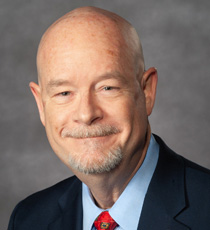
After more than a decade of enjoying the prestige of being one of the most highly sought-after specialties in the medical student match process, there have been troubling signs in the past few years that something was amiss. In 2019, the number of medical students who initially matched into radiation oncology declined with multiple slots unfilled. At the time, there was speculation about whether this was an anomaly or the beginning of a trend that had been forecast years before. In 2020, the field saw a larger decline in the number of medical students who matched, coupled with an increase in the number of people who then entered the field through the Supplemental Offer and Acceptance Program (SOAP) process. In fact, radiation oncology had the highest percentage of spots filled through the SOAP of any medical specialty.
From a treatment perspective, many factors, including the decreased use of radiation for some disease sites and an increased use of hypofractionation, bring into question the long-term viability of our specialty. Despite the many positive aspects of radiation oncology, there are growing concerns about the future of the workforce. There has been an increase in the number of available trainee positions despite the apparent decline in medical student interest and concern regarding patient volume projections. These issues contribute to forecasts of declining income streams and anxieties about the future given the recently proposed ― and now delayed ― radiation oncology alternative payment model. The worrisome trend in the SOAP percentages for radiation oncology underscores some of these negative perceptions about the field among students and residency applicants, which are in turn amplified on social media platforms. Not surprisingly, many students are confused about what career path to choose and may be discouraged to pursue radiation oncology before they even truly explore it.
ASTRO leaders have sought to be forthright with our members about challenges in the field (see previous blog posts below) and ASTRO’s role in addressing them. While there are strict anti-trust principles ASTRO must abide by, the Board of Directors felt compelled to issue a definitive statement so that there is no ambiguity about our position.
ASTRO Position Statement on the U.S. Radiation Oncology Workforce
- Radiation oncology has long been a critical component of multidisciplinary cancer management, driven by clinical and scientific innovation. Recent advances in technology and our understanding of cancer biology have allowed radiation oncologists to offer more accurate and effective therapies, often in fewer total treatments than before, resulting in improved patient care. ASTRO has observed growth in residency training positions over the past two decades. With more efficient treatment delivery, fewer radiation oncologists may be needed in the coming years. Residency training positions should be reserved for those who are enthusiastic about the field and should reflect the anticipated societal need for radiation therapy services. As we prepare the next generation of radiation oncologists for independent practice, we encourage stakeholders to carefully consider these aspects affecting our specialty as they review the size and scope of their training programs.
Additionally, ASTRO acknowledges the continued need to grow and nurture diversity within the next generation of our workforce. We serve diverse peoples, and our trainees and faculty should reflect that diversity. We are committed to addressing all aspects of bias as we seek to ensure equity and inclusion within our specialty and to improve health outcomes for all our patients.
While we acknowledge that this statement will not magically solve the issues impacting the field, we do want to be clear with our current and future members about ASTRO’s stance on this critical issue. We also strive to keep the lines of communication open with all members, including our residents. We listen to and appreciate the insights and perspectives from Association of Residents in Radiation Oncology (ARRO) to better understand their perceptions and experiences. Results from a survey of the class of 2020 found that residents had an average of five job interviews, received at least two job offers and, perhaps most significantly, 89% of residents were satisfied with the offers they received. While there are some vocal naysayers on social media, the direct response from residents gives us confidence and hope about the current realities in the field.
Radiation oncology has always sought the best and the brightest minds for our field because we know it is a truly rewarding area of cancer treatment. That will not change. We have deeply meaningful interactions with our patients, curing many of their cancers, alleviating suffering and extending life. Technology continues to play a large role in the field with novel and groundbreaking synergies between radiation and systemic agents, including immunotherapeutics, and many contemporary research questions are emerging, ripe for exploration and clinical trials. The field is also expanding due to innovations in radiopharmaceuticals and theranostics, offering radiation oncologists exciting new ways in which to help patients. While the future is unpredictable, we unequivocally believe in the continued impact and relevance of our specialty going forward, and perhaps more importantly, have unshakeable faith in the dedicated professionals who have made radiation oncology fundamental in the fight against cancer.
Read previous posts:
A Commitment to the Field - Dr. Theodore DeWeese, March 10, 2020
The Residency Training Landscape, Continued - Dr. Paul Harari, May 28, 2019
The Residency Training Landscape - Dr. Paul Harari, March 20, 2019


